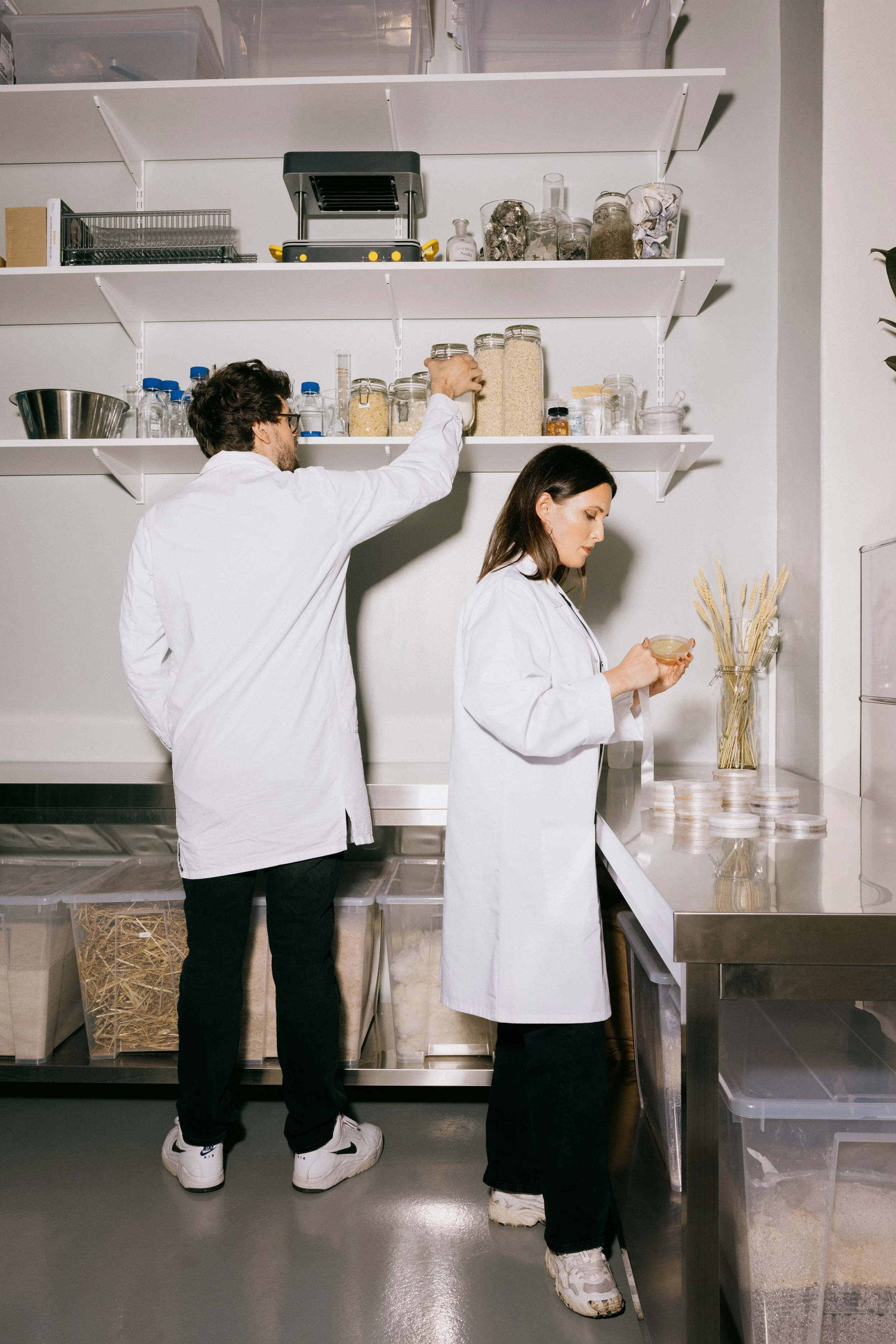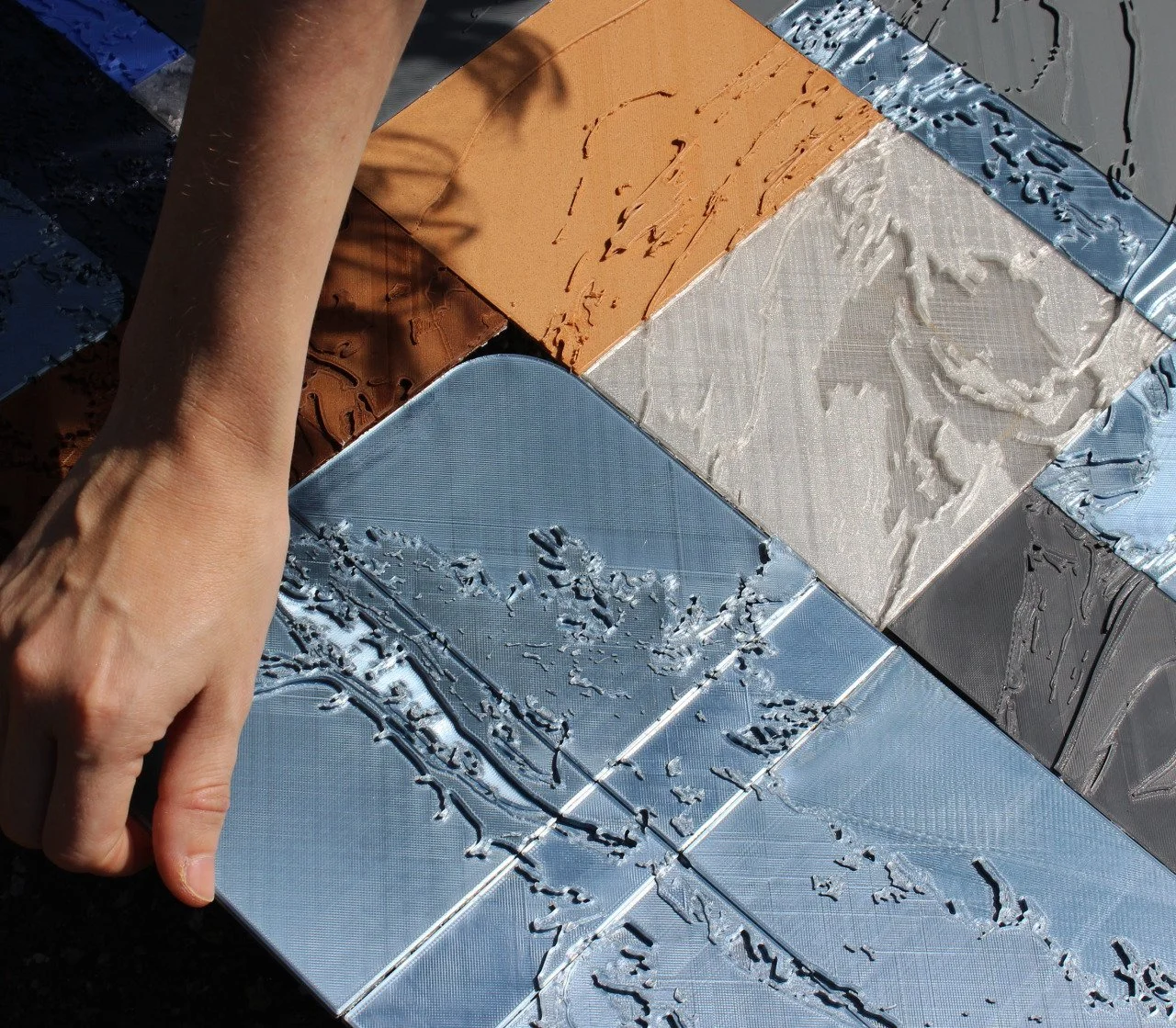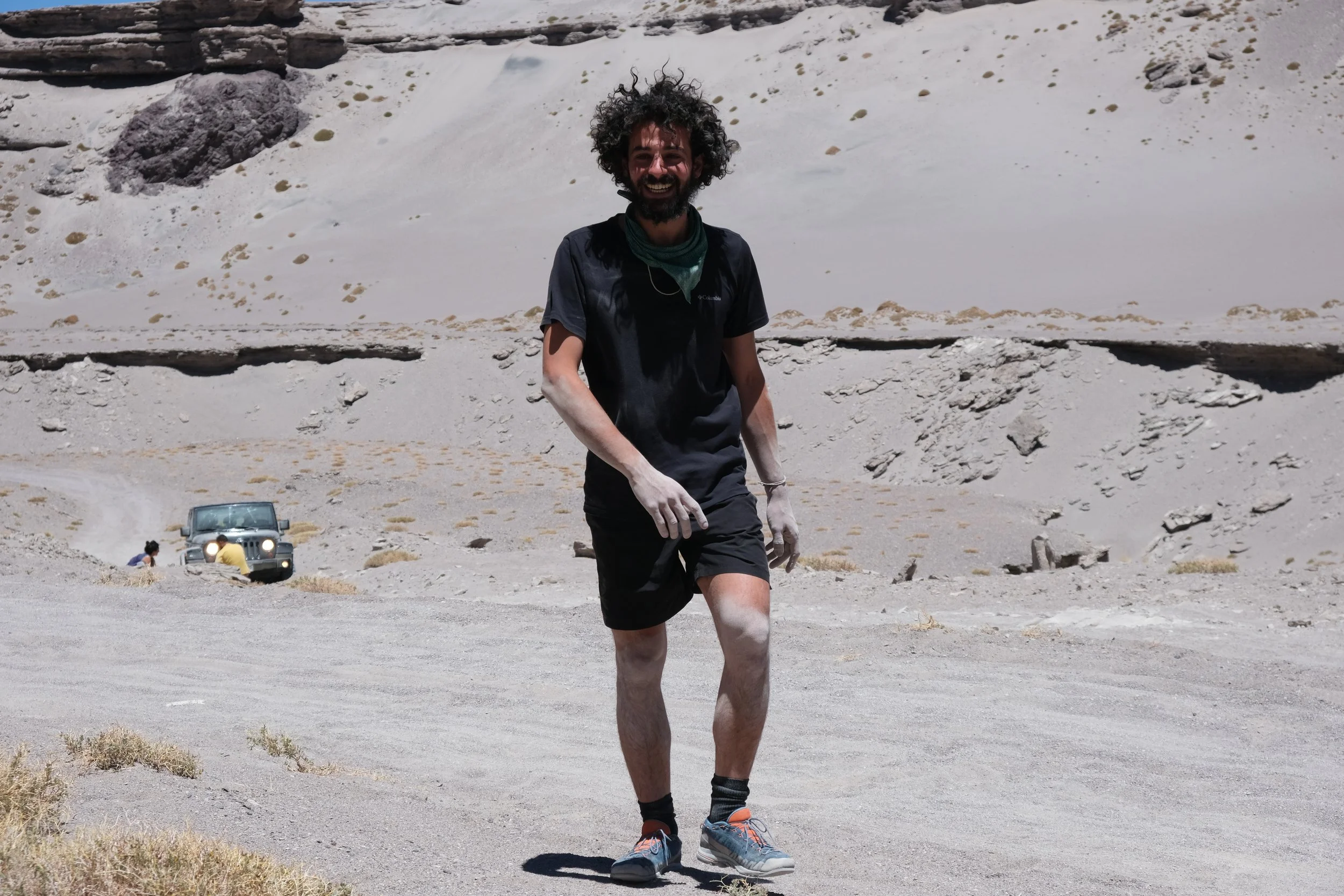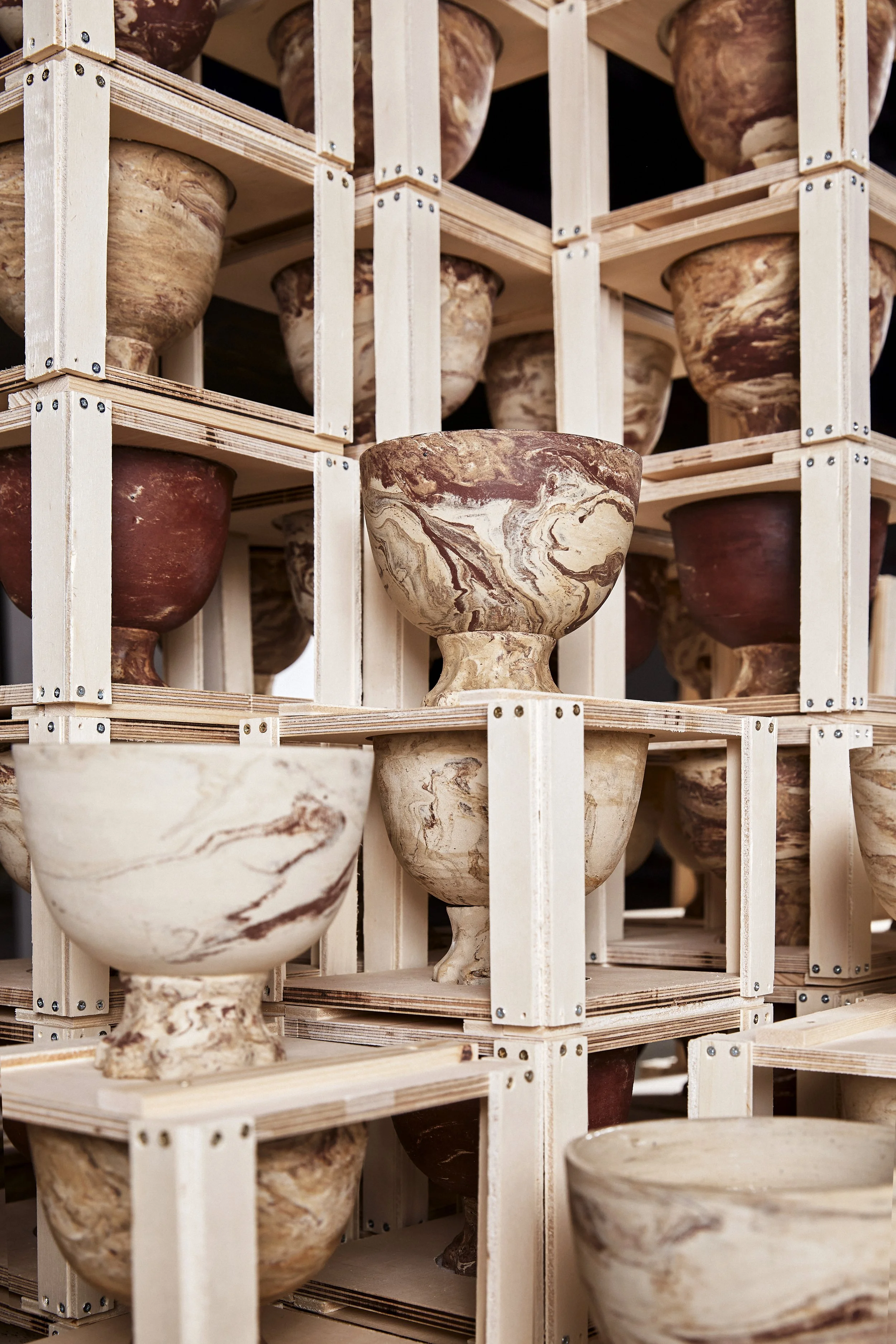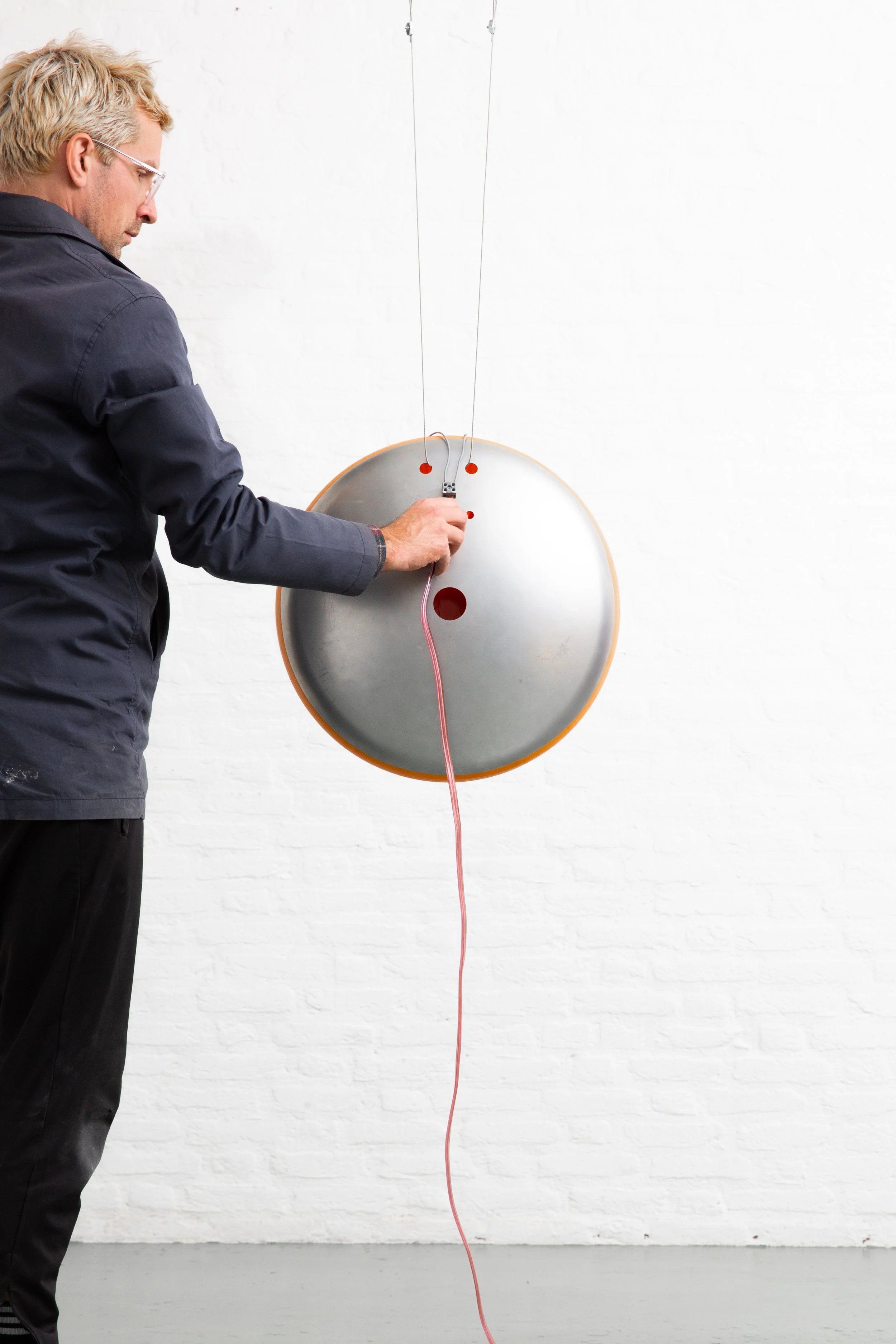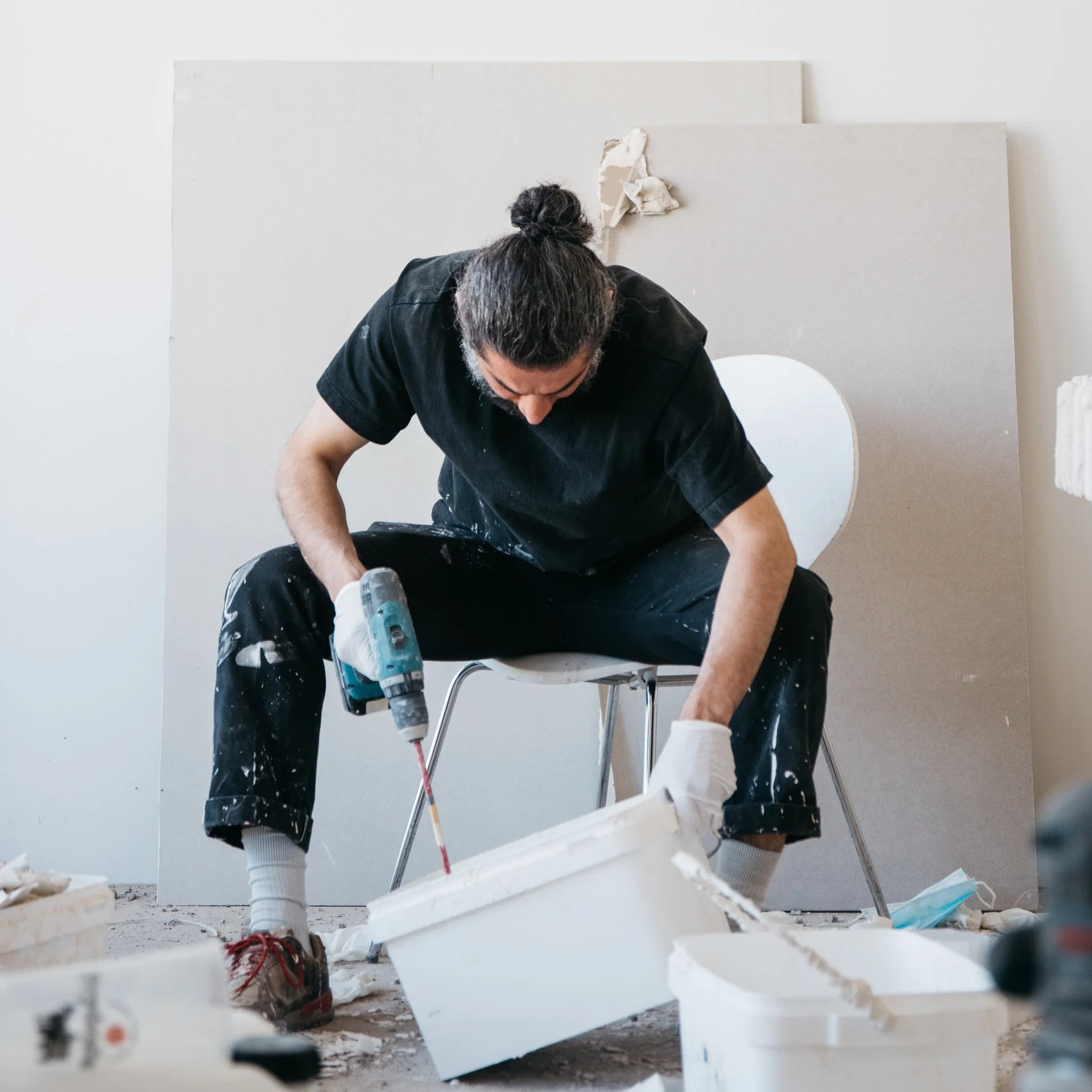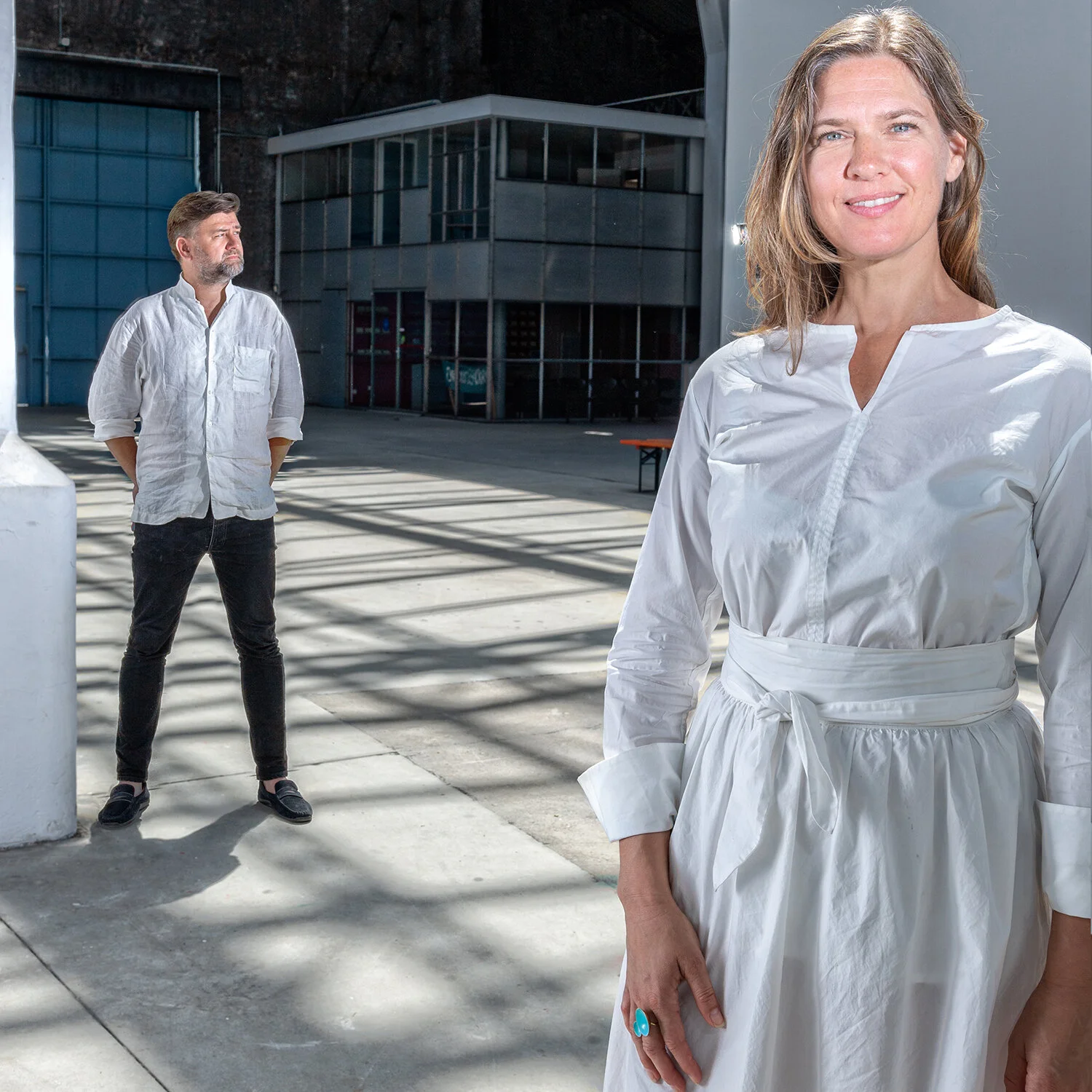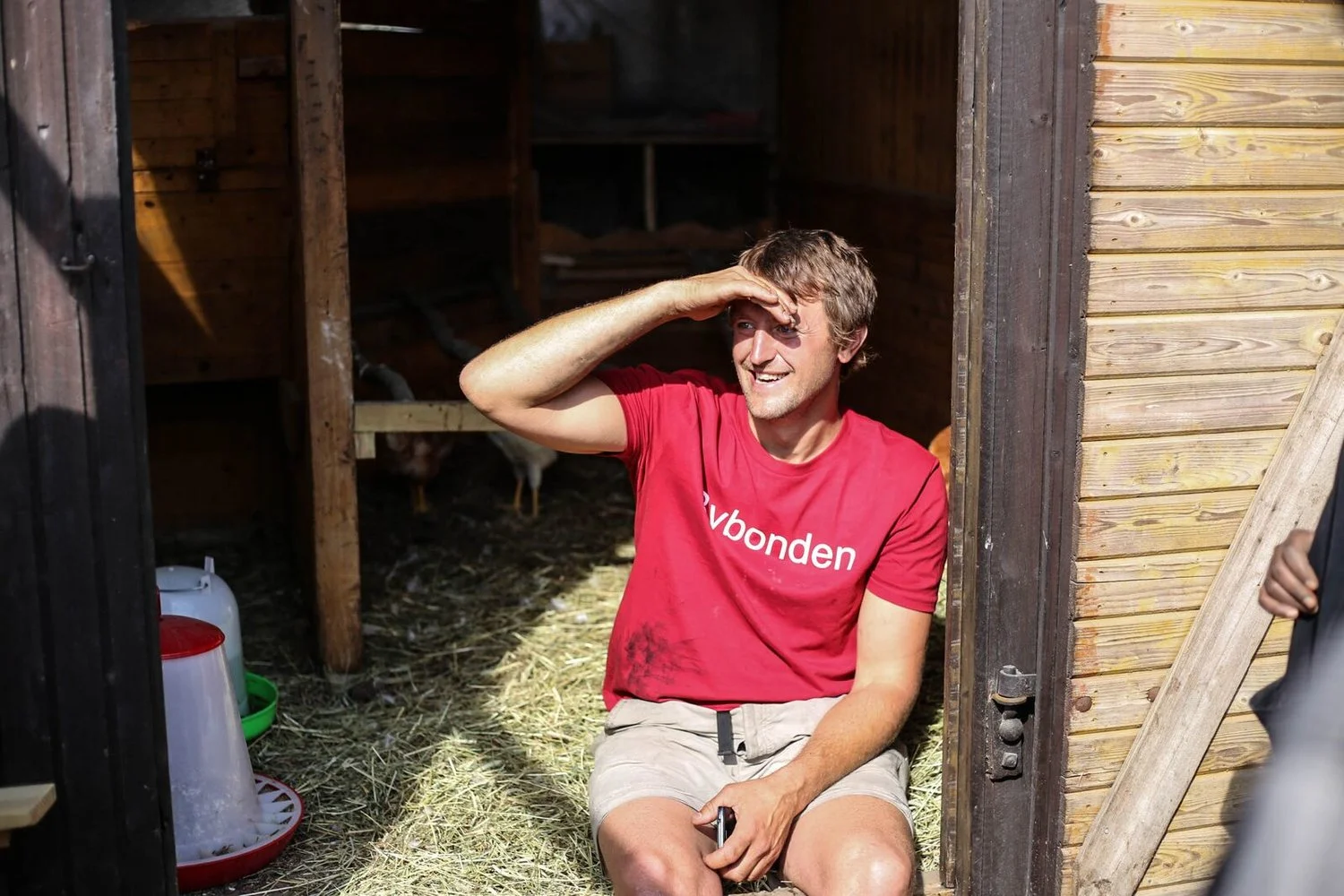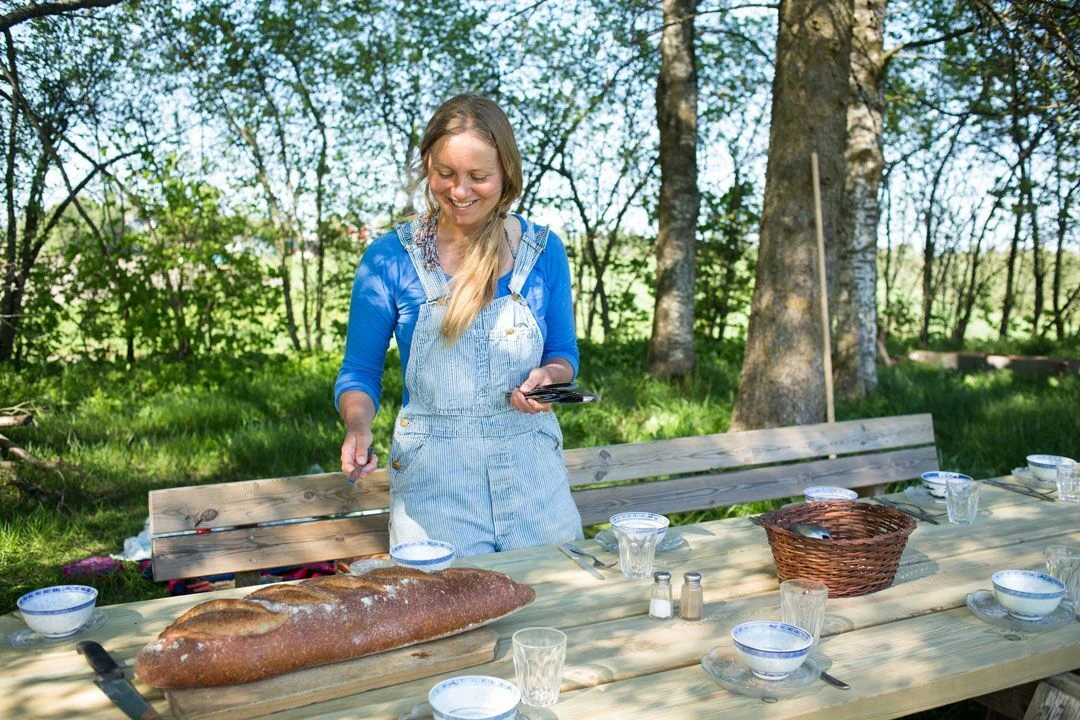Kneip: Stack One thing on Another and Dip it in an Unknown Solution
While it has been suggested that era of the object is behind us, Norwegian art- and design studio Kneip are infusing their objects with meaning, beauty and a real sense of wonder.
Find below an account of our recent conversation with Stian of Kneip on their work, object culture and on natural corrosion.
Stian Korntved Ruud & Jørgen Platou Willumsen in their studio at Carl Berner in Oslo.
# Where are you exactly now & how does that relate to your work as designers and artists?
In the workshop, We try to spend as much time as possible experimenting with materials and different techniques. Many of our products and projects started this way. Stack one thing on top of the other and dip it in a unknown solution.
# Your products often emphasize handcraft. Do you see a new place for the artisan in the present culture?
With more and more mass production of similar stuff, I think the artisan will always have his/hers place in the word - at least to keep craft traditions alive or in collaboration with the industry. Artisans do not only make jewellery and pots anymore. I am exited to see more people working with technology and new field of expertise.
The Objects Of Cusriosity by Kneip and Pega-Cut : The series consists of nine sculptures made from a combination of new and found components. The whole project is one big playful experiment exploring different phenomenon such as magnetism, mechanical motion, wind, crafts, deformation by vacuum and material properties.
# Several of your products and art pieces explore aging and corrosion. Please share some of your thinking and processes behind this.
Nature and natural processes has always been a great inspiration to us. By working with natural materials, mostly by hand, you get a close relationship to its structure, for instance the natural laws that has assembled the wood fibers in a log for instance.
After a while you get the feeling of collaborating with the material in the process. The patination projects are influenced by this collaboration process. We do our part by thinking, planing and preparation and then we hand it over to nature and let it do its thing.
Weathered: "We began the process by exploring the theme weather and nature phenomenons. With this in mind we created a series of sculptures that explores and illustrates the force of nature. The series consists of five objects that each in different ways contains traces of elements like, degradation, humidity, wind and movement. The surfaces refer to a process where nature over time, will take control of their basic materials and return to zero."
# Communication and social media seems to be a hugely important concern for most desners today. Do you see this as an asset or a problem in the creative process?
I do not see social media an asset in the creative process, but in the marketing and getting your products out there it is an incredibly powerful tool
# Is design turning into a sort of a visual language of ideas, more than real life solutions?
It might be, it is often hard to distinguish prototypes and concepts to real life buyable objects.
Gauge is a flexible work light made of steel. The adjustable joints, design and use of materials is inspired by tool's functionality and aesthetics. The steel surface is blued which is a traditional way of protecting steel against rust. The lamp has a LED light source that contributes to energy efficiency and the possibility of changing to other color temperatures. There is a tabletop and floor version to maintain flexibility.
# What will the workspace of the future will be like?
Hopefully just as you like it!
# Please give away a superb tip on ONE GREAT THING to explore on the web. If it was the very last thing we did.
Head over to https://geoguessr.com/ and have one last go.
Thanks!
We warmly recommend to check out the Kneip website which contains great documentation and moving pictures of their objects and processes. : www.kneip.no
Loen: At the beginning of May (2015) we went to the western part of Norway to make a new project. For three days we wandered and cycled around Stryn looking for materials for the project. We were in search of something that would reflect nature's brutal and majestic forces. The result is a series of sculptures. The matte black surface emphasis the organic shapes created by the forces of nature over time. By depriving the object's natural coloring we want to pull the object out of its natural environment and create new associations.
Pat.vol.1: "An experimental project where we have used different techniques to explore surfaces and colors to steel. During the last years we have worked a lot with steel, copper and brass and over time gained skills in how we can use chemicals to start processes that will make the metal oxidize. In many ways we kick start a process that over time will be in constant change. The outcome of this exploration is a series of sculptures that have close relations to some of our biggest inspirations – nature, weather and the geometry."
Elementa Conversations:













